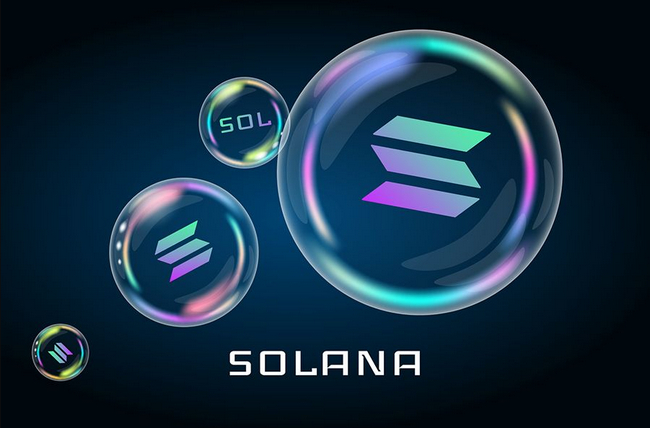-
 Bitcoin
Bitcoin $101,187.6364
4.13% -
 Ethereum
Ethereum $2,038.7729
11.85% -
 Tether USDt
Tether USDt $1.0002
0.01% -
 XRP
XRP $2.2535
5.72% -
 BNB
BNB $620.5617
3.13% -
 Solana
Solana $159.9406
9.51% -
 USDC
USDC $1.0000
0.00% -
 Dogecoin
Dogecoin $0.1894
10.73% -
 Cardano
Cardano $0.7353
10.16% -
 TRON
TRON $0.2540
3.03% -
 Sui
Sui $3.8708
16.33% -
 Chainlink
Chainlink $15.2085
11.54% -
 Avalanche
Avalanche $21.2242
9.63% -
 Stellar
Stellar $0.2788
7.79% -
 Bitcoin Cash
Bitcoin Cash $420.8814
15.51% -
 Shiba Inu
Shiba Inu $0.0...01387
8.69% -
 UNUS SED LEO
UNUS SED LEO $8.7468
0.66% -
 Hedera
Hedera $0.1908
9.35% -
 Toncoin
Toncoin $3.1626
5.05% -
 Hyperliquid
Hyperliquid $21.9817
4.24% -
 Litecoin
Litecoin $93.2799
4.53% -
 Polkadot
Polkadot $4.3090
9.71% -
 Monero
Monero $296.3661
3.86% -
 Dai
Dai $1.0003
0.01% -
 Bitget Token
Bitget Token $4.4339
3.59% -
 Ethena USDe
Ethena USDe $1.0005
0.01% -
 Pi
Pi $0.6285
8.30% -
 Pepe
Pepe $0.0...09899
22.02% -
 Bittensor
Bittensor $414.2943
14.31% -
 Uniswap
Uniswap $5.6098
16.54%
what are solana tokens
Amidst Solana's thriving blockchain landscape, its diverse token ecosystem empowers applications, fosters liquidity, facilitates communication, and enables governance, driving innovation and community engagement across the platform.
Nov 06, 2024 at 05:22 pm

Unveiling the Treasure Trove of Solana Tokens: A Comprehensive Guide
Solana's captivating ecosystem has fostered the creation of a diverse array of tokens, each playing a distinct role in the burgeoning blockchain landscape. From utility tokens that power decentralized applications (dApps) to governance tokens that confer voting rights, the Solana token landscape offers a myriad of opportunities for investors and enthusiasts alike. This comprehensive guide meticulously explores the fascinating world of Solana tokens, unraveling their unique characteristics and highlighting their impact on the Solana ecosystem.
1. SOL – The Heartbeat of Solana
At the core of the Solana ecosystem lies SOL, the native utility token that lubricates the intricate network mechanisms. SOL serves as the lifeblood of the blockchain, performing an array of essential functions:
- Transaction Fees: SOL is the exclusive currency utilized to settle transaction fees on the Solana network. Its limited supply ensures that the network remains secure and efficient, preventing spam and promoting responsible usage.
- Staking: SOL holders can participate in the network's Proof-of-Stake (PoS) consensus mechanism by staking their tokens. This process contributes to the security and validation of transactions, earning stakers proportional rewards in return.
- Governance: SOL plays a crucial role in the governance of the Solana protocol. Token holders can participate in the Solana Foundation's governance process, proposing and voting on improvements to the network.
2. Serum (SRM) – The Decentralized Exchange Champion
Serum, a decentralized exchange (DEX) built on Solana, has its own native token known as SRM. SRM empowers traders and liquidity providers within the Serum ecosystem, offering a suite of benefits:
- Trading Fee Discounts: SRM holders enjoy reduced trading fees on the Serum DEX. The more SRM they stake, the greater the discounts they receive.
- Liquidity Incentives: Liquidity providers who stake SRM in the Serum order books are eligible for additional rewards. This incentivizes the provision of liquidity, ensuring ample trading opportunities for users.
- Governance: SRM holders participate in Serum's decentralized governance model. They can propose and vote on changes to the exchange's parameters, ensuring its alignment with community preferences.
3. Raydium (RAY) – The Liquidity Aggregator
Raydium, another Solana-based DEX, introduces its native token, RAY. RAY serves as the backbone of the Raydium ecosystem, facilitating decentralized trading and providing incentives to users:
- Liquidity Aggregation: RAY powers Raydium's liquidity aggregation capabilities. It allows users to access liquidity from multiple sources, ensuring optimal prices and execution for trades.
- Staking: RAY holders can stake their tokens to earn yield. Staking also entitles them to participate in Raydium's governance decisions.
- Liquidity Mining: Raydium employs a liquidity mining program that rewards users who provide liquidity to its pools. RAY tokens are distributed to these liquidity providers as incentives.
4. Oxygen (OXY) – The Communication Platform Token
Oxygen, a decentralized communication platform on Solana, utilizes its native token, OXY. OXY facilitates communication and community building within the Solana ecosystem, offering several key features:
- Messaging: OXY is used to send and receive messages on the Oxygen platform. Users can create public or private chats, and OXY acts as the medium of exchange for message transmission.
- Community Governance: OXY holders participate in the governance of the Oxygen platform. They can vote on proposals related to the platform's development and features.
- Incentivized Communication: Oxygen incentivizes active participation in its community. Users earn OXY for sending high-quality messages, engaging in discussions, and contributing to the platform's growth.
Disclaimer:info@kdj.com
The information provided is not trading advice. kdj.com does not assume any responsibility for any investments made based on the information provided in this article. Cryptocurrencies are highly volatile and it is highly recommended that you invest with caution after thorough research!
If you believe that the content used on this website infringes your copyright, please contact us immediately (info@kdj.com) and we will delete it promptly.
- Bitcoin Just Broke $99,000 as Crypto Market Reacts to Trump's "Major Trade Deal" Teaser
- 2025-05-08 23:15:12
- Bitcoin Cash (BCH) Breaks 8-Year Downtrend as BTC Bull Token Promises 10x Gains
- 2025-05-08 23:15:12
- Ripple's XRP Has Gained 3% in the Last 24 Hours, Riding the Wave of Renewed Optimism in the Broader Cryptocurrency Market.
- 2025-05-08 23:10:12
- Bitcoin (BTC) is no longer just “digital gold” — Dan Held says the narrative needs to evolve
- 2025-05-08 23:10:12
- Stripe Expands Into the Crypto Arena, Launching Support for USDC Stablecoin Payments
- 2025-05-08 23:05:12
- GoMining Removes the Friction of Entry Into the Bitcoin Ecosystem
- 2025-05-08 23:05:12
Related knowledge

What is Ethereum’s Slashing mechanism and how to punish malicious behavior?
Feb 20,2025 at 03:08am
Key PointsOverview of slashingDifferent types of slashing in EthereumIncentives and consequences of slashingIdentifying and reporting slashed validatorsOngoing discussions and potential improvementsEthereum's Slashing Mechanism: Punishing Malicious BehaviorEthereum's slashing mechanism is an essential tool for ensuring network security and punishing mal...

What is the verifier node of Ethereum and how to become a verifier?
Feb 19,2025 at 06:00pm
The Verifier Node of Ethereum: A Comprehensive GuideKey Points:What is a Verifier Node?How to Become a Verifier NodeResponsibilities and Rewards of a Verifier NodeMinimum Requirements for Becoming a Verifier NodePotential Difficulties in Running a Verifier Node1. What is a Verifier Node?A Verifier Node is an independent entity on the Ethereum network th...

What is Ethereum’s staking, and how to participate and earn money?
Feb 19,2025 at 04:37pm
Key Points:Understanding Ethereum's Staking MechanismSteps to Participate in StakingBenefits and Rewards of StakingSecurity and Risk ConsiderationsTechnical Requirements and Hardware OptionsPotential Challenges and Troubleshooting TipsFAQs on Ethereum StakingWhat is Ethereum's Staking?Proof-of-Stake (PoS) is a consensus mechanism used in blockchain netw...

What is Ethereum’s DAO (Decentralized Autonomous Organization) and how does it work?
Feb 20,2025 at 03:12am
Key PointsDefinition and Structure of a DAOGovernance and Decision-Making in DAOsBenefits and Use Cases of DAOsChallenges and Limitations of DAOsWhat is Ethereum's DAO (Decentralized Autonomous Organization) and How Does It Work?Definition and Structure of a DAOA Decentralized Autonomous Organization (DAO) is an innovative governance and management fram...

What is Ethereum's multi-signature wallet and how to improve security?
Feb 20,2025 at 02:18pm
Key Points:Understanding the Concept of a Multi-Signature WalletBenefits and Drawbacks of Multisig WalletsRequirements for Setting Up a Multisig WalletStep-by-Step Guide to Generating a Multisig WalletImplementing Strategies for Enhanced Security1. Understanding the Concept of a Multi-Signature WalletA multi-signature (multisig) wallet in the Ethereum e...

What is Ethereum's oracle and how to provide data for smart contracts?
Feb 21,2025 at 01:30am
Key Points:Understanding the concept of oracles in EthereumExploring different types of oraclesDetailed guide on how to provide data for smart contractsAddressing potential challenges and considerationsWhat is Ethereum's Oracle?Oracles are crucial components in the Ethereum ecosystem, enabling smart contracts to access real-world data and off-chain even...

What is Ethereum’s Slashing mechanism and how to punish malicious behavior?
Feb 20,2025 at 03:08am
Key PointsOverview of slashingDifferent types of slashing in EthereumIncentives and consequences of slashingIdentifying and reporting slashed validatorsOngoing discussions and potential improvementsEthereum's Slashing Mechanism: Punishing Malicious BehaviorEthereum's slashing mechanism is an essential tool for ensuring network security and punishing mal...

What is the verifier node of Ethereum and how to become a verifier?
Feb 19,2025 at 06:00pm
The Verifier Node of Ethereum: A Comprehensive GuideKey Points:What is a Verifier Node?How to Become a Verifier NodeResponsibilities and Rewards of a Verifier NodeMinimum Requirements for Becoming a Verifier NodePotential Difficulties in Running a Verifier Node1. What is a Verifier Node?A Verifier Node is an independent entity on the Ethereum network th...

What is Ethereum’s staking, and how to participate and earn money?
Feb 19,2025 at 04:37pm
Key Points:Understanding Ethereum's Staking MechanismSteps to Participate in StakingBenefits and Rewards of StakingSecurity and Risk ConsiderationsTechnical Requirements and Hardware OptionsPotential Challenges and Troubleshooting TipsFAQs on Ethereum StakingWhat is Ethereum's Staking?Proof-of-Stake (PoS) is a consensus mechanism used in blockchain netw...

What is Ethereum’s DAO (Decentralized Autonomous Organization) and how does it work?
Feb 20,2025 at 03:12am
Key PointsDefinition and Structure of a DAOGovernance and Decision-Making in DAOsBenefits and Use Cases of DAOsChallenges and Limitations of DAOsWhat is Ethereum's DAO (Decentralized Autonomous Organization) and How Does It Work?Definition and Structure of a DAOA Decentralized Autonomous Organization (DAO) is an innovative governance and management fram...

What is Ethereum's multi-signature wallet and how to improve security?
Feb 20,2025 at 02:18pm
Key Points:Understanding the Concept of a Multi-Signature WalletBenefits and Drawbacks of Multisig WalletsRequirements for Setting Up a Multisig WalletStep-by-Step Guide to Generating a Multisig WalletImplementing Strategies for Enhanced Security1. Understanding the Concept of a Multi-Signature WalletA multi-signature (multisig) wallet in the Ethereum e...

What is Ethereum's oracle and how to provide data for smart contracts?
Feb 21,2025 at 01:30am
Key Points:Understanding the concept of oracles in EthereumExploring different types of oraclesDetailed guide on how to provide data for smart contractsAddressing potential challenges and considerationsWhat is Ethereum's Oracle?Oracles are crucial components in the Ethereum ecosystem, enabling smart contracts to access real-world data and off-chain even...
See all articles

























![[2025.05.08] The two routes of Bitcoin continue to be observed, and gold is still bullish. [2025.05.08] The two routes of Bitcoin continue to be observed, and gold is still bullish.](/uploads/2025/05/08/cryptocurrencies-news/videos/routes-bitcoin-continue-observed-gold-bullish/image_500_375.webp)


























































